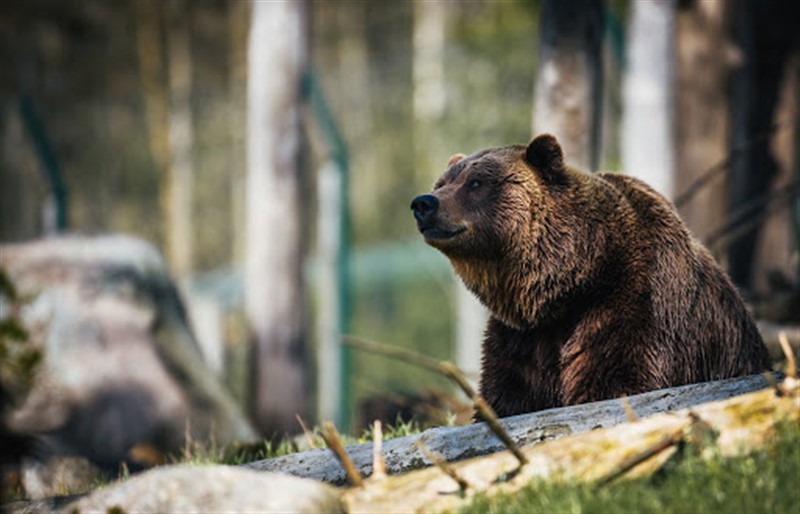The verb bear means ‘to endure’ or ‘carry,’ while the verb bare means ‘to expose’ or ‘uncover.’
-
 Alanna Madden
Alanna Madden
-
 January 13, 2021
January 13, 2021
-
 Grammar Tips
Grammar Tips
 January 13, 2021
January 13, 2021
 Grammar Tips
Grammar Tips
The verb bear means ‘to endure’ or ‘carry,’ while the verb bare means ‘to expose’ or ‘uncover.’
Bear and bare are two of the trickiest English homophones. We pronounce them the same, and they share similar spellings, but, in the end, they have completely different meanings.
The word bear is a noun and verb with several definitions, but most of us recognize “bear” as the large mammals who scavenge for berries and fish. Giant pandas, polar bears, sun bears, and American or Asian black bears are all examples of this furry animal. Unfortunately for us, they are not related to the verbs bear and bare.
Many English speakers struggle with the verbs bear and bare, but with the help of Garner’s Modern English Usage, we can quickly resolve the matter:

The New Oxford American Dictionary defines the verb bare as ‘to uncover’ or ‘expose‘ something to view, whether it’s an object, emotion, or body part. Verb forms of bare include “baring” for the present participle, “bare” for the present tense, and “bared” for the past participle.
Sentence examples:
Synonyms:
Disclose, divulge, expose, reveal, strip, unbosom, uncloak, uncover, undrape, undress, unmask, unveil.
As an adjective, the word bare describes a person or part of the body that is not clothed, covered, or disguised. However, we can also use the adjective to describe something as basic, simple, or surprisingly small in quantity.
Sentence examples:
Synonyms:
[1] Au naturel, bald, bottomless, denuded, disrobed, exposed, mother-naked, naked, nude, open, peeled, plain, stripped, revealed, unclad, unclothed, undressed, uncovered.
[2] Bankrupt, barren, bereft, blank, destitute, devoid, empty, mere, modest, plain, stark, unadorned, undecorated, vacant, void.
The verb bear has several different meanings, but the primary definitions are ‘to carry’ and ‘to endure.’ For either sense, we use “bearing” as the present participle, “borne” as the past participle, and “born” for the past tense.
When the verb bear means ‘to carry,’ it describes the broad act of transporting, harboring or sustaining something. Specific contexts include:
1. To transport or carry something.
Synonyms:
Bring, deliver, carry, cart, convey, ferry, forward, haul, lug, pack, send, ship tote, transfer, transport.
2. To wear or display something.
Synonyms:
Display, carry, exhibit, flaunt, pack, show off, sport.
3. To possess relevance or a connection.
Synonyms:
Appertain, apply, associate, concern, connect, interest, involve, link, pertain, refer, relate, resemble.
4. To hold up, support, or carry the weight of something.
Synonyms:
Bolster, brace, carry, prop up, support, sustain, uphold.
5. To harbor feelings or hold within.
Synonyms:
Cherish, contain, cultivate, entertain, foster, harbor, have, hold, nurse, nurture.
6. To carry or conduct oneself in a particular manner.
Synonyms:
Acquit, behave, carry, compose, conduct, constrain, control, demean.
7. To produce revenue, children, or fruit and flowers (as a tree or plant).
Synonyms:
Birth, deliver, generate, produce, return, reproduce, propagate, spawn, yield.
The verb bear can also mean ‘to endure’ an ordeal or ‘to manage to tolerate’ with difficulty. For example,
Alternatively, when the phrase “cannot bear” precedes a verb or noun, it means ‘to strongly dislike.’ For example,
Similar meanings of bear also include the act of supporting, taking responsibility, or standing up to something. For example,
Synonyms:
Abide, accept, endure, handle, live with, shoulder, stand, stick out, stomach, sustain, take, tolerate, tough it out, undertake.
Lastly, the verb bear may infer a sense of directionality, whether it means ‘to turn and proceed in a specified direction’ or ‘to occupy a space or location.’ Example sentences include,
Synonyms:
Aim, beeline, direct, extend, face, head, make, orient, point, set out, steer, turn.

The word bear also exists as a noun when it describes the bear animal species (family Ursidae), which are large, furry mammals with short, stubby tails. All bears are recognizable by their slumped posture, four-legged mobility, and slight facial resemblance to dogs. Sentence example include,
English speakers also use the noun bear to mean ‘a rough, unmannerly, or uncouth individual,’ ‘a large, cumbersome man,’ or ‘an unpleasant situation’ in general. For example,
If you’re discussing the stock market, the noun bear also describes someone who forecasts the rise and fall of stocks or commodities (especially when they sell and purchase stocks later at lower prices). For example,
Another reason English speakers struggle with bear vs. bare involves the plethora of phrases we use them for (especially the ones that sound similar). First, let’s take a look at commonly misspelled phrases:
The phrase “bear arms” means to carry firearms or wear a coat of arms. For example,
“Bare arms” is not a phrase, but it’s worth mentioning because it sounds exactly the same as “bear arms.” If someone has “bare arms,” it means their arms are exposed or uncovered. For example,
The phrases “grin and bear it” and “bare one’s teeth” both sound as though they involve opening your mouth, but that’s just because “bear” and “bare” sound the same.
According to the Cambridge Dictionary, the phrase “grin and bear it” means ‘to accept something bad without complaining.’ For example,
Meanwhile, the phrase “bare one’s teeth” means ‘to show one’s teeth‘ while angry (“Bare” 132). For example,
Learning the difference between bare and bear is much easier with mnemonic phrases like “a bear can bear a heavy load” or “a bear can bear it.” These two expressions are also great ways to make sense of “bear,” as the verb means ‘to carry’ or ‘endure.’ But if you need a way to remember “bare,” as well, try this unique approach:
“You can dare to bare, but to fight a bear is unbearable.”
“Dare to bare” is an easy way to remember the spelling of “bare,” but it’s also helpful for memorizing the definition too. Following with the phrase “to fight a bear is unbearable” allows us to contrast the meaning and spelling of “bear” and to remember the correct spelling of “unbearable” (a commonly misspelled word).
For more lessons on commonly confused words involving homophones, homographs, and more, check out The Word Counter’s lessons on topics, such as:
Do you find common misspellings to be unbearable? If so, double-check your understanding of bare vs. bear with a quick multiple-choice quiz.
Answers